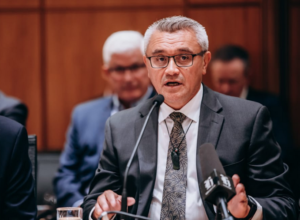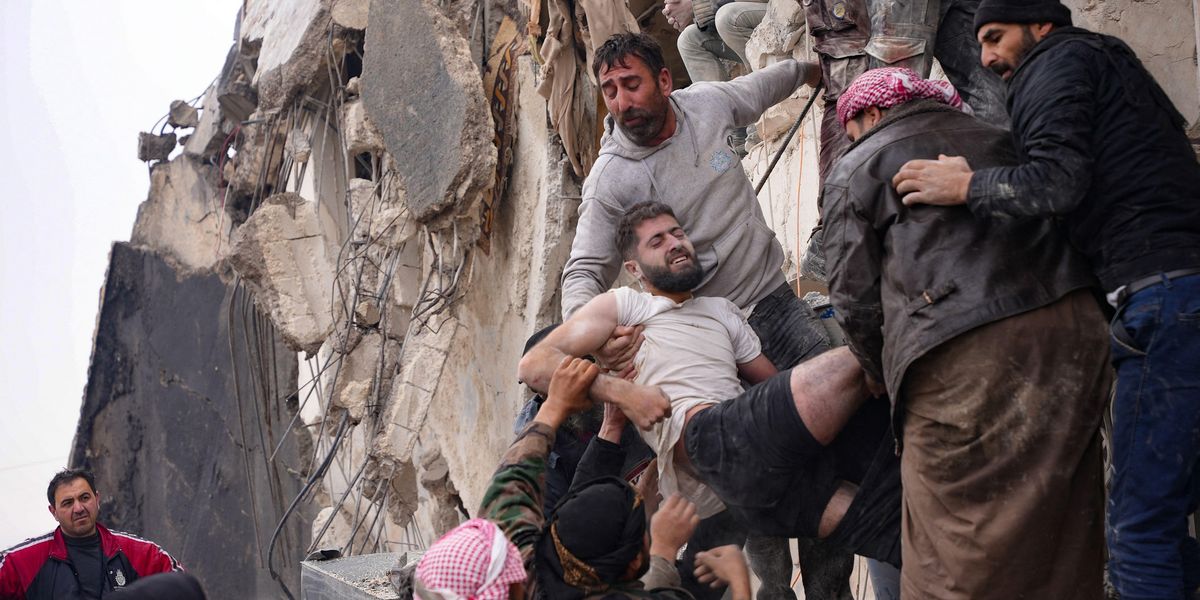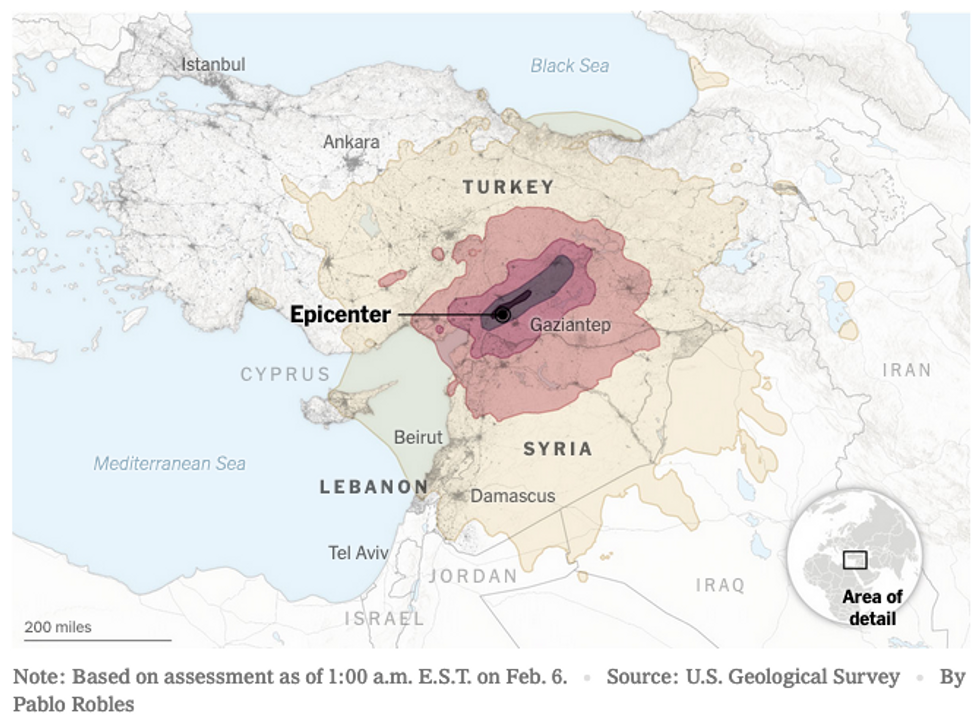Read Parts 1 and 2.
The sooner the war in Ukraine is over, the sooner the U.S. and Russia can get down to the business of preserving arms control as a viable part of the relationship between the two nations.
By seeking to extend the Ukraine conflict, however, the U.S. is in effect engaging in an act of self-immolation that threatens to engulf the world in a nuclear holocaust.
— former United States Marine Corps intelligence officer Scott Ritter
It is an imperative, and it must be a universal principle of all morally conscious people that war is anathema and militaries should be abolished everywhere, at least on the national level. (I leave open space for the establishment and maintenance of a genuinely international military force under a nonaligned international command to uphold the disarmament and abolishment of national and extranational militaries.)
In the article, “On the Left and Violence in Syria: The imperialist Violence in Syria, Part 7,” B.J. Sabri and I discussed violence in the context of mortal struggle between or inside nation states and the need to consider the factors that generated it. It is a given that every decent person in the world should decry the killing of kids, women, elderly, and civilians of all ages anywhere, and this includes men; there is no debate on this point. However, our rage, analysis, and criticism should be directed primarily and even exclusively on all those governments whose involvement in imperialism, warring, and killing that create death, destruction, and tragedies.
However, the root causes of warring must be addressed, and not all warring must be considered as equivalent. Morality and principles must guide us in how we address warring.
Earlier, I argued: “As a principle, resistance to oppression must be an inalienable right no matter what the type of resistance it may be. Blame for any violent resistance must never be laid on the oppressed but rather on the oppressor because oppression in itself is violent and when one suffers violence then violent resistance becomes justified as self-defense.”
Numerous anti-imperialist writers from around the world are antiwar. Yet, not all clearly distinguish between the initiator of the violence, resistance to the initial violence, and machinations that corner a rival country which then fights it way out from the corner.
Ted Glick, antiwar activist and author of Burglar for Peace, wrote on 24 February,
The Ukraine/Russia war continues to be, at root, a battle for national self-determination by Ukraine against an imperialist power, Russia. Disturbingly, there continue to be leftist groups and individuals in the US who deny this fact.
I demurred with his contention that it was “a battle for national self-determination by Ukraine against an imperialist power, Russia,” so I asked Ted Glick,
How do you define NATO’s massive eastward encroachment to Russia’s border? Yet, you define Russia as an imperialist for defending its security after its proposal of a mutual security agreement was rejected by US-NATO-Ukraine. It sure seems to me that Russia asked for a win-win from all parties, and that the blame lies on those who rejected security for all.
Glick replied,
An invasion by 125,000 troops into a neighboring country isn’t ‘defending its security,’ it is imperialist aggression.
Peace advocate Jan Oberg, co-founder of the The Transnational Foundation (a think tank dedicated to bringing about “peace by peaceful means”), wrote in an email missive on 8 April 2022:
It’s time to say it clear and loud: Russia is responsible for its illegal and immoral invasion of Ukraine. The West is responsible for its military, economic and political reaction to it and for NATO’s expansion before it. And Ukraine’s leaders are responsible for how they operated 2014-2022.
And it is every social science intellectual’s duty to do comparative studies – to compare also this war with other wars over the last 30 years, the far majority of which conducted illegally and immorally by the US and NATO allies – and with many times worse consequences than the war on Ukraine has so far had.
I asked Jan Oberg,
My reading from the above is that Russia acted without provocation. So provocation (unless you reject that) based on a rejection of mutual security and knowing full well what US imperialism has wreaked over the years up to today only makes the West responsible for their reaction to Russia’s invasion? This strikes me as the onus being placed on Russia. Others argue that the SMO was legal (e.g., Scott Ritter). Immoral. Yes, killing in isolation is immoral, but killing in self-defense is not immoral. Allowing a serious threat to the lives and livelihoods of the Russian people to continue to encroach closer with an agenda to carve up Russia and siphon off its resources would be a dereliction of a government’s duty, no?
Oberg replied,
No, the invasion was by no means unprovoked – I would never use that stupid NATO phrase/lie.
In terms of a bit of philosophy, each of us are responsible for how we choose to react to a provocation – and other acts. There is no automaticity that legitimates violent actions – I am too much of a Gandhian to believe in that. And that what I said here, today a year ago:
https://transnational.live/2022/02/25/there-were-alternatives-why-russia-should-not-have-bombed-ukraine/
Secondly, all my arguments are written up here – but I admit it is a long one:
https://transnational.live/2022/08/18/the-tff-abolish-nato-catalogue/
It’s one long argument that NATO has made the mother of all blunders – in trying to getting Ukraine into NATO and NATO into Ukraine. A series of scholars – including I myself – warned that war would be the outcome. Nobody listened to us – not even to (now CIA’s) William Burns (see my latest article) and also not to any Russian leader for 30 years.
Even so, I would argue, the invasion was not acceptable – although understandable/explainable.
David Swanson of War Is A Crime.org, has been an unrelenting opponent of war — a principled sentiment. What sane and morally guided person doesn’t share this sentiment? Although opposition to warmaking is a unifying factor of antiwar types, there is room for dissent as to what constitutes warmaking and the legitimacy of different forms of warring. For instance, Swanson lumps together warmaking and the warring of a resistance, such that he criticizes all violence, even that in self-defense, as reprehensible. Not only is such lumping flawed but it is arguably a barrier to attaining a world in which there is no more war. If one fails to unequivocally differentiate between offensive violence (what I would define as “warmaking,” although an equally apt term may be “aggression.”) and the violence of self-defense or joint defense of an ally under attack (which is not “warmaking” – except in an Orwellian sense – but is more aptly defined as “resistance.”) George Orwell was scathing in his rejection of pacifism: “Pacifism is objectively pro-fascist. This is elementary common sense. If you hamper the war effort of one side, you automatically help out that of the other.”
In response to a 3 September 2019 article, “Nonviolence Denial Is As Dangerous As Climate Denial” by Swanson, I interviewed him to discern how he could seemingly equate all actors in a war notwithstanding why the warring started and why the warring actors where engaged. I find some of his statements factually inaccurate, logically and ethically flawed, and evasive.
For example, Swanson cited, by way of Stephen Zunes, “Mariupol became the largest city to be liberated from control by Russian-backed rebels in Ukraine…” This is propaganda for NATO. Another writer would have noted that the US engineered a coup in Ukraine to overthrow the elected government using neo-Nazis, to which a resistance arose in the east of Ukraine.
In a similar vein to Oberg, Swanson presents as a successful passive resistance the Gandhian example in India. Of this, George Orwell wrote, “As an ex-Indian civil servant, it always makes me shout with laughter to hear, for instance, Gandhi named as an example of the success of non-violence. As long as twenty years ago it was cynically admitted in Anglo-Indian circles that Gandhi was very useful to the British government.” Those people who were subservient to British empire in the Indian subcontinent could be considered accomplices in a genocide that has been calculated to number 100 million.
*****
As for the problem with pacifism, to get at the core of the matter, I present a scenario from which readers can draw their own conclusions.
Imagine that a person unfamiliar to you suddenly punches you in the face. You recoil from the blow and massage your sore jaw. Somehow you stifle any physical retaliation. Instead you try to understand why this stranger would assault you. He replies, “Just because I don’t like your face.”
He comes at you again with his fist, and it lands in your solar plexus. You are bent over and winded by the blow. Then he kicks you in the side. At this point you fully understand that the attacker is going to continue to inflict physical violence against you.
Two questions for readers to ponder:
1) Seeing no other options, if you defend yourself physically, are you blameworthy for any part of the violence?
2) Are you then a “violence-maker” along with the attacker who threw the first punches without any legitimate justification?
*****
While non-violent resistance sounds righteous. I submit that a violent attacker prefers nothing better than to target a passive “resistor”? What good is being self-righteous when you are hospitalized or dead, leaving behind your family and friends to fend for themselves and their potentially becoming the next targets for violence? I side with the logic proffered by the anti-racist revolutionary Malcolm X:
I myself would go for nonviolence if it was consistent, if everybody was going to be nonviolent all the time. I’d say, okay, let’s get with it, we’ll all be nonviolent. But I don’t go along with any kind of nonviolence unless everybody’s going to be nonviolent…. But as long as you’ve got somebody else not being nonviolent, I don’t want anybody coming to me talking any nonviolent talk.
Readers ought to reach their own conclusions and consider the above scenario while reading the following interview with Swanson.
*****
Kim Petersen: I am thoroughly antiwar, and I’d like to see every nation disarm. However, I grant the victims of attack the right to defend against and resist attacks. This does not come through to me in your latest piece. So I pose the following questions.
David Swanson: Because I disagree with it. 
KP: You wrote: “I severely criticized my fellow peace activists when some of them cheered for Russian bombings in Syria. I even went after Russia for its warmaking in Syria repeatedly on Russian television.”
I agree that warmaking is a heinous crime. And as I understand it, you condemn all warring. Nonetheless, for warring to occur there has to be a starting point and, I submit that a war does not usually start simultaneously between/among combatants. Therefore, I ask if a party makes war against your country, how should you respond? Would you not defend your country?
DS: Usually this is asked as “Do the Iraqis get to fight back?” since it’s the U.S. doing most of the aggression. The short answer to that question is that if the aggressor would have refrained, no defense would have been needed. Turning resistance to U.S. wars around into justification for further U.S. military spending is common on this topic, yet too twisted even for a K Street lobbyist.
The slightly longer answer is that it’s generally not the proper role for someone born and living in the United States to advise people living under U.S. bombs that they should experiment with nonviolent resistance.
But the right answer is a bit more difficult than either of those. It’s an answer that becomes clearer if we look at both foreign invasions and revolutions/civil wars. There are more of the latter to look at, and there are more strong examples to point to. But the purpose of theory, including Anti-Just-War theory, should be to help generate more real-world examples of superior outcomes, such as in the use of nonviolence against foreign invasions.
Studies like Erica Chenoweth’s have established that nonviolent resistance to tyranny is far more likely to succeed, and the success far more likely to be lasting, than with violent resistance. So if we look at something like the nonviolent revolution in Tunisia in 2011, we might find that it meets as many criteria as any other situation for a Just War, except that it wasn’t a war at all. One wouldn’t go back in time and argue for a strategy less likely to succeed but likely to cause a lot more pain and death. Perhaps doing so might constitute a Just War argument. Perhaps a Just War argument could even be made, anachronistically, for a 2011 U.S. “intervention” to bring democracy to Tunisia (apart from the United States’ obvious inability to do such a thing, and the guaranteed catastrophe that would have resulted). But once you’ve done a revolution without all the killing and dying, it can no longer makes sense to propose all the killing and dying — not if a thousand new Geneva Conventions were created, and no matter the imperfections of the nonviolent success.
Despite the relative scarcity of examples thus far of nonviolent resistance to foreign occupation, there are those already beginning to claim a pattern of success. Here’s Stephen Zunes:
“Nonviolent resistance has also successfully challenged foreign military occupation. During the first Palestinian intifada in the 1980s, much of the subjugated population effectively became self-governing entities through massive noncooperation and the creation of alternative institutions, forcing Israel to allow for the creation of the Palestine Authority and self-governance for most of the urban areas of the West Bank. Nonviolent resistance in the occupied Western Sahara has forced Morocco to offer an autonomy proposal which — while still falling well short of Morocco’s obligation to grant the Sahrawis their right of self-determination — at least acknowledges that the territory is not simply another part of Morocco.
“In the final years of German occupation of Denmark and Norway during WWII, the Nazis effectively no longer controlled the population. Lithuania, Latvia, and Estonia freed themselves from Soviet occupation through nonviolent resistance prior to the USSR’s collapse. In Lebanon, a nation ravaged by war for decades, thirty years of Syrian domination was ended through a large-scale, nonviolent uprising in 2005. And last year, Mariupol became the largest city to be liberated from control by Russian-backed rebels in Ukraine, not by bombings and artillery strikes by the Ukrainian military, but when thousands of unarmed steelworkers marched peacefully into occupied sections of its downtown area and drove out the armed separatists.”
One might look for potential in numerous examples of resistance to the Nazis, and in German resistance to the French invasion of the Ruhr in 1923, or perhaps in the one-time success of the Philippines and the ongoing success of Ecuador in evicting U.S. military bases, plus of course the Gandhian example from India. But the far more numerous examples of nonviolent success over domestic tyranny also provide a guide toward future action.
To be morally right, nonviolent resistance to an actual attack need not appear more likely to succeed than violent. It only need appear somewhat close to as likely. Because if it succeeds it will do so with less harm, and its success will be more likely to last.
KP: And if you and your allies engage in defense, does that mean that you are a “warmaker”?
DS: That would depend on whether your defense uses war.
KP: Sorry, I should have elaborated. If you use the physical violence characteristic of warring to defend against a war launched against you, does that make you a “warmaker”?
DS: Yes, if you wage war you wage war.
which does not mean Hitler = Roosevelt = Castro
it just means if you wage war you wage war
KP: In the case of Syria, the legitimate government (meaning that it governs the country and is recognized as the government by other countries) found itself under physical attack, (and for the sake of argument whether we agree or not on this point) is that government not allowed to defend itself from physical threat?
DS: The simple answer of yes or no in a particular circumstance as well as the answer to “How much mass slaughter is acceptably characterized as defense”? is not empirically answerable by a scientist or a lawyer and, as you know, is answered by the U.S. and allied nations as they see fit. What I would consider a moral answer is of course a completely different one.
KP: You wrote: “If the United States and Russia escalate a joint bombing campaign in Syria, things will go from very bad to even worse for those not killed in the process.”
With all due respect, this comes across as an assertion; one could equally assert the opposite: if fanatical “insurgents,” “rebels,” “mercenaries,” etc. (whatever monikers one wishes to attach to the forces seeking to depose the government) are allowed to attack without resistance and depose the government then the situation will surely become a hell, and the evidence for this is the smoldering carcass of the formerly leading African nation of Libya.
DS: It’s not an assertion. It’s a guarantee. But it’s not exclusive of your worry, as the U.S. is not setting aside overthrowing the government and throwing the region into chaos and likely putting ISIS in power. Clinton says Obama was wrong not to bomb and overthrow the government three years ago, and she intends to do so.
KP: You wrote: “Of course the U.S. went ahead with arming and training and bombing on a much smaller scale. Of course Russia joined in, killing even more Syrians with its bombs than the United States was doing, and it was indeed deeply disturbing to see U.S. peace activists cheer for that. Of course the Syrian government went on with its bombings and other crimes, and of course it’s disturbing that some refuse to criticize those horrors, just as it’s disturbing that others refuse to criticize the U.S. or Russian horrors or both, or refuse to criticize Saudi Arabia or Turkey or Iran or Israel.”
By trying to come across as evenhanded in your criticism, I submit a bias arises. Do you agree or disagree that if Saudi-, Qatari-, western-backed “rebels” had not launched/supported an attempted coup that there would have been no need for the Syrian government to defend the country (and, of course, the government) and there would have been no need to ask Russia to intervene or Iran or Hezbollah?
DS: The Syrian government cracked down on a mostly Syrian opposition before it became such a proxy war — which excuses the ongoing mass murder by absolutely nobody. [This narrative by Swanson has been compellingly refuted by independent journalist Eva Bartlett who has often been on the ground in Syria during the fighting. ]
KP: If my contention is factual, then why focus equal blame on the resistance to the “rebels”? The rebels made war, and this gave rise to resist the “rebels.”
DS: Blaming everyone engaged in making a situation worse does not mean blaming them all equally, and I have certainly never tried to imply such a thing which would of course be ridiculous.
Part 4: Ending war for once and all.
The post
Voices Against War first appeared on
Dissident Voice.
This post was originally published on Dissident Voice.









 Last November the UN called on states to lift "catastrophic" sanctions on
Last November the UN called on states to lift "catastrophic" sanctions on 

